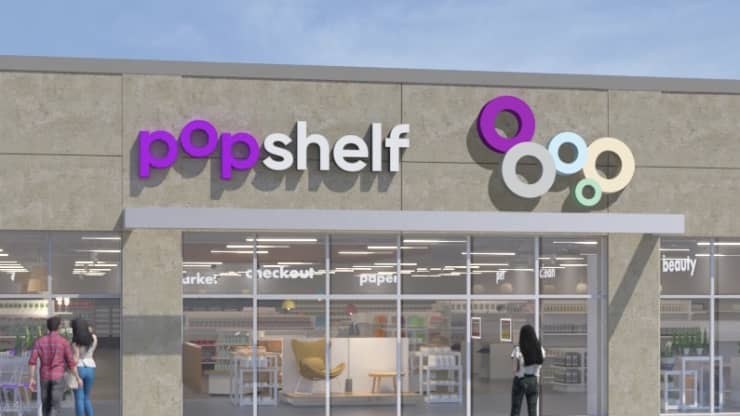Brands See Value in ‘Value’ Channel

Value retailers (ie. dollar stores and closeout specialists) are among the few classes of physical retail trade posting strong sales and expanding this year in the U.S., and they’re increasingly providing an opening for licensing.
To be sure, value retailers have long carried licensed goods – Disney kicked off the move into the channel several years ago – but brand owners increasingly see them as a channel to be serviced, rather than as a neighborhood to be avoided.
For example, Five Below launched a DTR with 2019 Fortnite World Cup Champion Kyle “Bugha’ Giersdorf in November consisting of seven SKUs of gaming headsets, keyboards and mice that has endcaps in its stores. And a major close-out retailer is said to be developing a planogram for licensed apparel for 2021, a sharp contrast to the one-time buys more typical of the channel.
Remaining Relevant
“This [the Giersdorf DTR] is an example of how the Five Below continues to evolve from being a retailer that simply sells brands to one that creates and produces new, exclusive and relevant brands through partnerships,” Five Below CEO Joel Anderson said in releasing financial results earlier this month.
Plans like these are being met with newfound interest from licensors, many of whom used to eschew sales through value retailers for fear of devaluing a brand. Licensors’ motivation has much to do with a relatively new reality: there are ever-fewer stores to sell through and even fewer retailers that are expanding and posting strong sales – a pattern that preceded the pandemic. But there’s no doubt that COVID-19 brought a new focus.
New Distribution Channels
“This year big-name clients of ours that didn’t contractually allow licensees to sell into those channels, within four weeks [of the pandemic outbreak] my phone was ringing with ‘how can you get us into these channels?’” says one licensing executive. “They had turned up their nose at being in value, but once we explained that value is consumer-based they wanted to lean in.”
Yet it’s challenging for brand owners and licensees to navigate. For one thing, value retailers often require 50%-60% margins, often calling for skus (or package quantities) specifically adapted to the reality of their own tight margins, and the need to avoid conflicting with product in other channels. “Some licensees might have a big minimum guarantee they have to hit and they would rather break even and then write the check hoping that over time they can make money” with the volume orders value retailers can deliver, says Uncanny Brands CEO Matthew Hoffman, who has worked with Five Below in the past. “It’s as simple as that.”
But licensors as well as the retailers themselves are increasingly viewing the channel in terms long-term store planograms rather than one-time, closeout buys. Crayola has programs at Dollar General, Dollar Tree, Family Dollar, Poundland (UK) and B&M (UK) for its core and licensed products and plans to further expand them, says Warren Schorr, VP Business Development and Global Licensing. And Five Below’s merchandising group is shifting from “opportunistic one-time buys, to plan strategic, specific buys,” says Anderson.
“We are aggressively looking at value as its own distinct channel of distribution with its own attributes and needs, and we are developing not only licensees, but a variety of programs, including DTR models so we can be a partner to these retailers,” says Schorr. “It’s a question of do you see yourself as part of a solution set for their needs just as you would for Walmart, Target or anybody else. This where brands get to shine because the value retailer needs brands day in, day out.”
Among recent developments:
- Five Below has deployed a “Five Beyond” section offering products priced at $6-$10 in 150 of its 1,018 locations, an assortment heavily weighted toward licensed goods. It also broadened its assortment of licensed t-shirts throughout the stores and opened esports facilities in October connected to its locations in Georgetown, TX and Philadelphia, PA as part of a joint venture with Nerd Street Gamers. It plans to open up to 70 such facilities during the next several years.
- Dollar General open its first 9,000-sq.-ft. Popshelf stores in Hendersonville and Clarksville, TN, targeting suburban consumers with incomes of $50,000-$125,000, a departure from its typically rural locations targeting those with sub-$50,000 incomes. Thirty more of these stores, which carry a large mix of seasonal and home goods, are planned for 2021. The company also plans to open another 1,050 of its namesake stores in 2021, building on a base of more than 17,000, and remodel another 1,750.
- Big Lots, which purchased the Broyhill furniture brand in 2019, will expand it as a private label into housewares, rugs, bedding and decorative pillows in 2021. One licensing source says that a licensee has been working with Big Lots to contact brand owners in seeking to clear the way for licensed apparel to be sold through its stores.
- Not all close-out retailers are altering their game plan. Ollie’s Bargain Basement, amid the soaring number of retail closures, bankruptcies and liquidations this year, is experiencing its “strongest-ever deal flow” ranging from excess inventory and overruns to package changes and bankruptcies, CEO John Swygert said. “There is a lot of excess inventory that has been cancelled by other retailers, so the close out environment is as robust as it has ever been.” Ollie’s plans to open 50-55 stores in 2021, the build on its base of 385 locations, with a goal of eventually expanding to 1,050.




